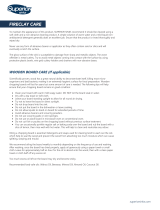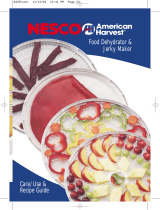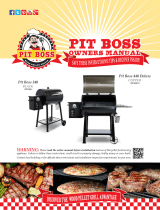IPT Sink Company IPTFC60PLN7636C User manual
- Type
- User manual

iptsink.com
To maintain the appearance of this product, IPT SINK COMPANY recommend it should be cleaned using
a soft cloth and a non-abrasive cleaning product. A simple solution of warm water and a mild liquid non-
antibiacterial detergent generally does an excellent job. Ensure that the product is rinsed thoroughly and
wiped dry.
Never use any form of abrasive cleaner or applicator as they often contain sand or silica and will
eventually scratch the surface.
The gloss surface of the sink is susceptible to damage from sharp and metallic objects. The worst
offender is metal cutlery. Try to avoid metal objects coming into contact with the surface by using
protective plastic bowls, wire grid cutlery holders and drainers with non-abrasive bases.
WOODEN BOARD CARE (If applicable)
Scientifically proven, wood has a great natural ability to decontaminate itself, killing most micro-
organisms and bad bacteria, making it an extremely hygienic surface for food preparation. Wooden
chopping boards will last for years but some amount of care is needed. The following tips will help
ensure that your chopping board remains in good condition:
• Clean your board with warm mild soapy water. DO NOT let the board soak in water.
• Dry with a tea towel or Soft cloth.
• Leave your board standing upright to allow for all round air drying.
• Try not to leave the board in direct sunlight.
• Do not drop board into the sink.
• Do not put the board in the dishwasher or leave soaking.
• Do not allow liquids to stand on board for extended periods of time.
• Avoid abrasive cleaners and scouring powders.
• Do not use scouring pads or wire sponges.
• Do not use or place board in microwave oven or conventional oven.
• Do not cut fish or poultry on the chopping board without previous surface treatment.
• You can occasionally sprinkle regular salt or baking soda over the board and rub the board with a
slice of lemon, then rinse well with hot water. This will help to clean and neutralise any odour.
Oiling a chopping board is essential: Detergents and soaps used for cleaning tend to wash out the oils
which help to seal the wood and prevent the wood from absorbing too much moisture which can cause
splitting, warping and mould.
We recommend oiling the board weekly to monthly depending on the frequency of use and washing.
After washing, once the board has dried properly, apply oil generously using a paper towel or small
cloth. Leave for approximately half an hour for the oil to absorb into the wood, then with a clean paper
towel or cloth buff off any excess oil.
Too much excess oil left on the board may dry and become sticky.
Recommended food-safe oils: Walnut Oil, Beeswax, Mineral Oil, Almond Oil, Coconut Oil.
-
 1
1
IPT Sink Company IPTFC60PLN7636C User manual
- Type
- User manual
Ask a question and I''ll find the answer in the document
Finding information in a document is now easier with AI
Related papers
Other documents
-
 Superior Sinks SPFC36PLNP User manual
Superior Sinks SPFC36PLNP User manual
-
Nesco American Harvest Snackmaster Pro FD-50T Care/Use & Recipe Manual
-
 American Harvest American Harvest Snackmaster Pro FD-50T User manual
American Harvest American Harvest Snackmaster Pro FD-50T User manual
-
Roper Downdraft Slide-In 4347928 (333240-1) User manual
-
Panasonic NN-MX21 Operation Manual And Cookbook
-
GE LEB131GYAD Owner's manual
-
GE JSP60GN User manual
-
 Pit Boss PB440D Owner's manual
Pit Boss PB440D Owner's manual
-
Villaware 8-280 User manual
-
GE JBS05 User manual



